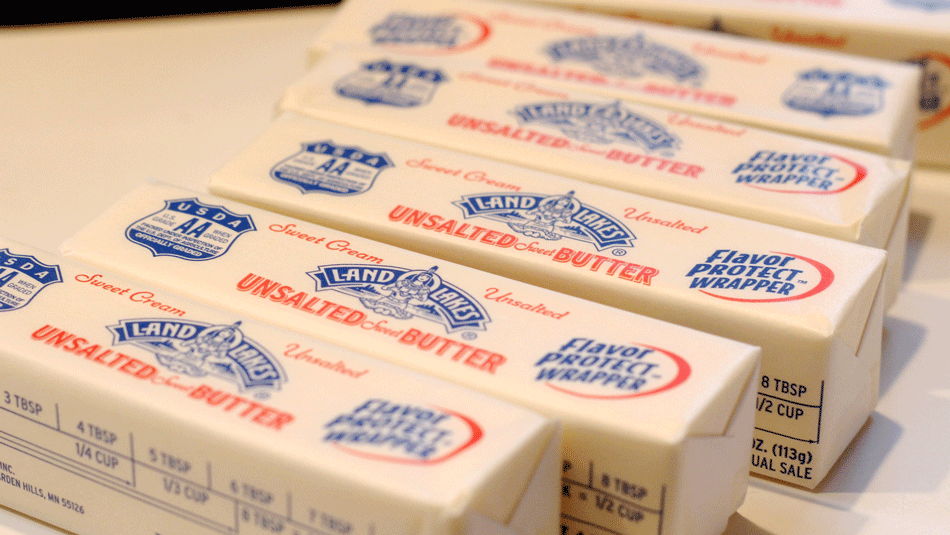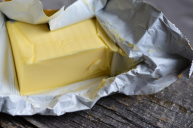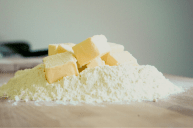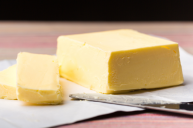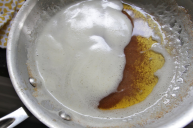Just ask the French or Julia Child: Everything is better with butter, but do you know which kind of butter will make it the best? Is it unsalted or salted? The difference between these seemingly identical bars of cooking gold has troubled many a home cook. So to help demystify the quandary, start by reading the packaging on the popular brands like Land O'Lakes Butter.
Videos by Wide Open Country
The first clue to the difference between these two types of butter is in the name. Salted butter contains added salt, while unsalted butter does not.
So why is this such a big deal? Well, for starters, each brand of butter adds a different quantity of salt to their product so you never really know how much additional salt you're introducing into your dish. As a result, that makes it difficult to accurately calibrate the rest of the seasonings in your recipe.
Unsalted butter is "fresher" than salted butter.
Salted butter obviously has salt in it, but besides adding flavor, the butter composition adds extra sodium which has the unexpected role of acting as a preservative.
In effect, this means that salted butter has a longer shelf life. In fact, the salted stuff can last up to three to four months longer than unsalted varieties.
Unsalted butter is the preferred baking butter.
Butter can be both a liquid and leavening agent in baking, but if you've ever noticed, most baking recipes specify unsalted butter. Why? Because it's easier to control the overall flavor of a recipe. This becomes particularly important when your baked goods rely on the pure, sweet cream flavor of butter (like shortbread or pound cake).
For those who bake commercially, this distinction can be vital because generally professional chefs don't have the luxury of sticking their fingers in the batter to conduct an impromptu taste difference test.
However, if you only have salted butter on hand don't fret. It is generally recommended that you half the amount of salt called for in a recipe if you are baking with salted butter.
So why would you ever use salted butter?
Outside of baking, salted butter is a great all-purpose choice - even better than olive oil. You can grease a pan, spread it on bread, put a pat in your pasta, or melt a little on your vegetables. It does double duty for recipes that need just that little bit extra of fat and flavor.
Its natural flavor can even have a surprising result when added in unexpected ways. Add some to your oatmeal and watch a boring breakfast food transform into a delicious, yet healthy treat.
